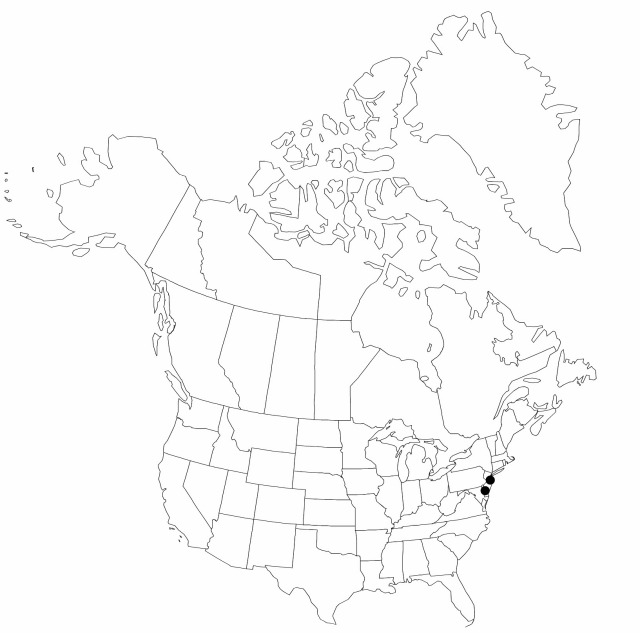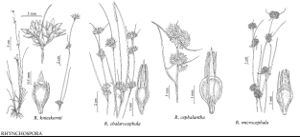Rhynchospora knieskernii
Amer. J. Sci. Arts, ser. 2, 4: 25. 1847.
Plants perennial, cespitose, to 50 cm; rhizomes absent. Culms erect to arching, leafy, linear to filiform, nearly triangular. Leaves ascending, overtopped by culm; blades flat, linear to filiform, to 1.8 mm wide, apex distally involute, trigonous, setaceous. Inflorescences terminal and axillary, spikelet clusters 2–4, widely spaced, the lowest near plant base; clusters compact, broadly turbinate to hemispheric, to 1.5 cm wide; leafy bracts curved, setaceous, slightly to greatly overtopping subtended compounds. Spikelets dark brown, lance-ellipsoid, 2–3 mm; fertile scales 2 mm, apex acute, midrib short-excurrent or not. Flowers: perianth bristles 6, ± as long as fruit body, retrorsely barbellate. Fruits mostly 2 per spikelet, 1.5–1.9 mm; body brown with yellowish center, ellipsoid, lenticular distal to short stipe, 1–1.3 × 0.6–0.8 mm; tubercle triangular, 0.3–0.6 mm, distinctly shorter than fruit body.
Phenology: Fruiting summer–fall.
Habitat: Moist to wet pine barrens, sand pits, borrow pits
Elevation: 0–100 m
Distribution

Del., N.J.
Discussion
Of conservation concern.
Rhynchospora knieskernii is in the Center for Plant Conservation’s National Collection of Endangered Plants.
Selected References
None.
